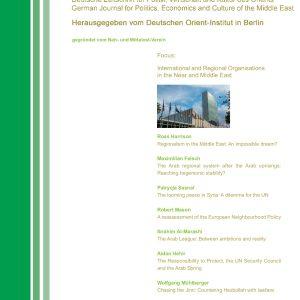Description
The article examines the League of Arab States’ (Arab League, AL) institutional shortcomings, the domestic constraints posed by member states, the dominance of international intervention, both American and Russian, and a lack of trust amongst the members, all of which have impeded and undermined the AL. While the AL was intended to serve as a mediator to resolve bilateral conflicts within the region, historically there has been a disconnect between the lofty visions of AL officials and the region’s realpolitik. In the present the AL has been unable to serve in a constructive conflict management role, partly due to its origins in an era of nation states, whereas the 21st century has witnessed the rise of non-state actors.
Ibrahim Al-Marashi is Associate Professor of Middle East history at California State University San Marcos (CSUSM). He obtained his doctorate in Modern History at University of Oxford, completing a thesis on the Iraqi invasion of Kuwait. His research focuses on 20th century Iraqi history, particularly regime resilience, civil-military relations, and state-sponsored violence during the Ba’athist-era from 1968 to 2003. He has researched the formation of the post-Baathist Iraqi state and the evolution of ISIS since its earliest incarnations during the Iraqi insurgency in 2003. His publications include Iraq’s Armed Forces: An Analytical History (Routledge, 2008), The Modern History of Iraq (Westview 2016), and A Concise History of the Middle East (Westview, forthcoming 2018).




Reviews
There are no reviews yet.